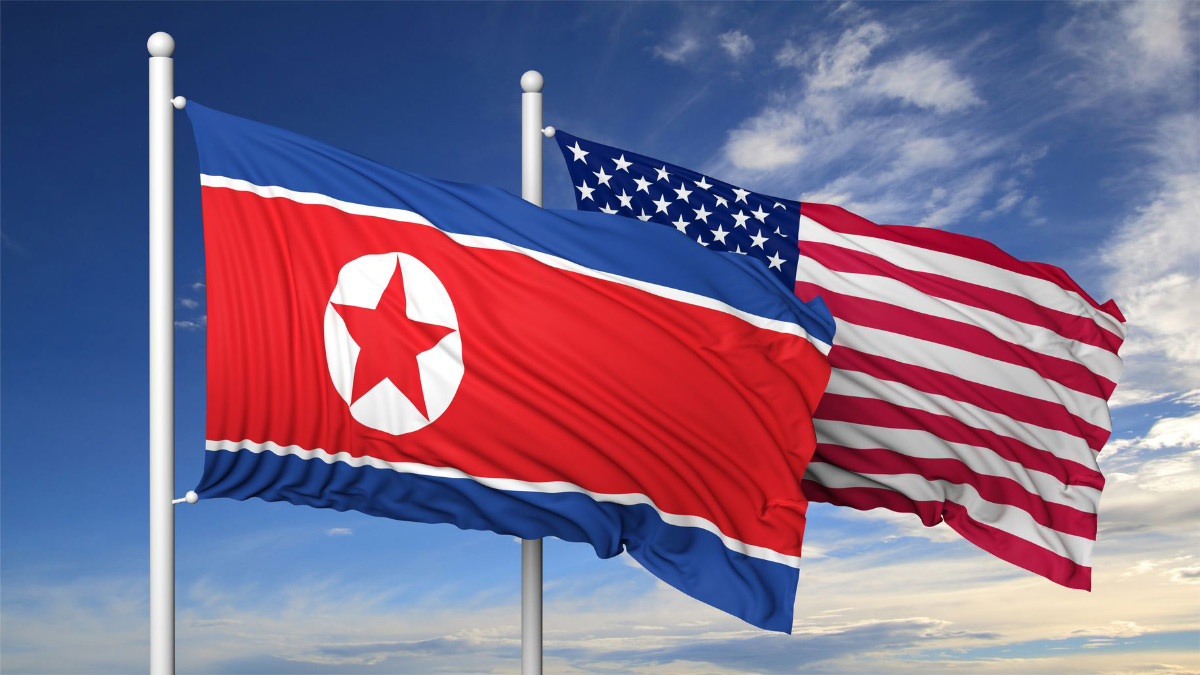In his eagerness to show his political base that he is a great negotiator, even internationally, President Trump ended up being fleeced by North Korean leader at the recent summit in Singapore. Yet strangely, both the United States and the image of the president may be better off for it in the long term.
Politicians, especially internationally, routinely create problems and then portray themselves as saviors for riding to the rescue. In the case of North Korean nuclear weapons and missiles, that is exactly what Trump did.
Trump’s initial response to North Korea’s advancements in nuclear weapon and long-range missile tests was over the top. He threatened to destroy North Korea, unleash “fire and fury,” and even bragged that his nuclear button was bigger than North Korea’s. North Korea reciprocally responded with name calling and equally overheated rhetoric.
Trump’s threats to use nuclear weapons against the Stalinist state if it didn’t give up its nuclear weapons were dangerous and unacceptable, even if Trump was merely using them as a negotiating ploy. In addition, Trump had painted himself into a corner by with such macho bluster, which could have started a conflagration on the Korean peninsula that could have killed hundreds of thousands or even millions of people.
Then Trump may have recognized that he had gotten in too deep and took advantage of North Korean leader Kim Jong-un’s invitation to meet him. This overture led to the “feel-good,” made-for-the-cameras summit just held. After the meeting, the returning American hero triumphantly tweeted, “Everybody can now feel much safer than the day I took office. There is no longer a Nuclear Threat from North Korea.”
The reason for being skeptical of Trump’s grandiose hyperbole is that the short, vague communique from the summit made concessions to North Korea and got almost nothing in return. Trump promised unspecified “security guarantees” and North Korea merely reiterated its longstanding commitment to denuclearization of the Korean peninsula.
This agreement does far less than the U.S. agreements with North Korea in 1994 and 2005, which failed to get rid of that nation’s nuclear weapons and missile programs.
Also, traditionally, North Korea has a starkly different idea of “denuclearization” than the United States. The United States has always wanted the North Koreans to get rid of their nuclear weapons and missiles in exchange for trade and foreign aid. The North Koreans think denuclearization of the peninsula should be reciprocal, with the United States terminating its nuclear umbrella over South Korea and Japan and withdrawing U.S. forces from South Korea.
Beyond the gauzy summit communique, Trump declared that he wanted to withdraw U.S. forces from South Korea for cost reasons and evidently agreed to suspend U.S.-South Korean war games, which even he deemed “provocative,” in an apparent trade for North Korea maintaining its testing moratorium on nuclear weapons and missiles. This arrangement seems suspiciously close to the earlier Chinese “freeze for freeze” proposal.
Finally, the North Koreans claimed that at the summit, Trump agreed to a phased North Korean denuclearization, with step-by-step relief from economic sanctions for the North. Administration officials subsequently have thrown cold water on this approach, declaring that no sanctions relief would be forthcoming until North Korean denuclearization was irreversible.
Of course, even if North Korea did promise to limit or eliminate its nuclear and missile programs—as it has done in previous failed agreements—getting it to do so is entirely another matter. When a reporter noted that verification—the insufficiency of which was one of the Trump administration’s reasons for welshing on the Iran nuclear deal—was not even mentioned in the summit agreement, U.S. Secretary of State Mike Pompeo, went ballistic.
The agreement also failed to address the most important issue—missiles, especially long-range ones that can get any nuclear weapons to the United States.
Finally, Kim Jong-un’s main objective for wanting the summit was to do what his father and grandfather couldn’t—bask in the prestige of meeting with the leader of the Free World, while being positively reinforced that it was his nuclear weapons and missiles that got him a seat at the table. Not a very good message to send to other aspiring nuclear powers though.
However, although Trump was clearly bested by Kim at the summit and the threat to the United States from North Korean nuclear weapons and long-range missiles has hardly evaporated, it has long been exaggerated anyway.
The main reason that the United States and East Asian countries hyperventilated about the North Korean nuclear threat was the fear that North Korea could not be deterred from attacking as had other potentially radical countries—Maoist China, the communist Soviet Union and Pakistan—when they got nuclear weapons.
Kim’s willingness to negotiate, and his skill at doing so, should placate fears that he is a madman who cannot be deterred, even if he is just stringing the United States along in an attempt to perfect his arsenal—as seems likely.

















